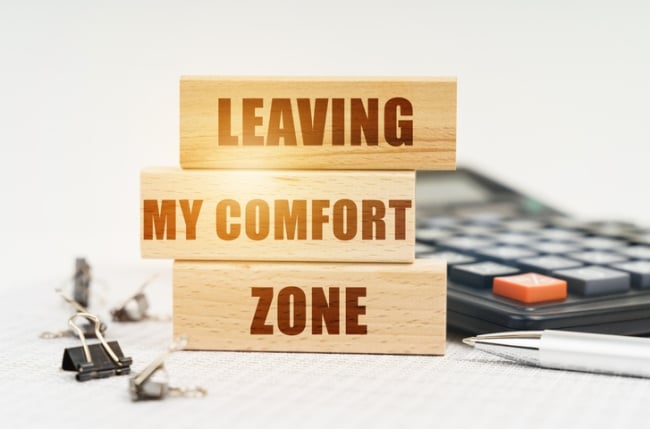You have /5 articles left.
Sign up for a free account or log in.

Dzmitry Skazau/iStock/Getty Images Plus
When I got to Vassar College, I was anxious. I grew up in a small town outside Buffalo, N.Y., where 97 percent of the faces were white, and I’d never been in a conversation I couldn’t charm my way through by talking about the Buffalo Bills. But when I matriculated in 2018, I was surrounded by more Black and brown faces than I’d seen in my life. Hardly anyone knew what the Bills were, much less followed the team, and Foucault’s panopticon came up in conversation as often as the weather. To say I was out of my comfort zone would be an understatement.
That discomfort pervaded my initial classroom experience. My first course, a writing seminar, was on Black autobiographies. Closed out of my first-choice course, I picked a class that was recommended by a sophomore. I needed the credit and figured I’d go, keep my head down and escape without causing too much trouble. After all, I was a straight, cis, white man who had never really talked about race outside of Martin Luther King Jr. I’d heard rumors about how easily everyone at these liberal arts colleges could be offended, and I didn’t want to make a reputation for myself right off the bat. I was liberal but not exactly an activist, and, coming out of a conservative suburb and having had a few fraught arguments with my grandparents, I knew how to stay quiet.
Even in the first few classes, however, I found myself participating more and more. It seemed everyone in the class was as nervous as I was, and that nervousness created a shared vulnerability—and a shared honesty—that led to meaningful discussions and debates.
Nevertheless, about a month in, it happened. I had worked for weeks on our first essay, a paper on the theory of Black autobiography that referenced authors from Nat Turner and Frederick Douglass to Malcolm X and Kendrick Lamar. Our professor chose to read it as a class … and it got walloped. Almost every student picked something they didn’t like about the piece and teed off on it. One Black student in particular made it very clear that she felt alienated and upset by my nearly exclusive use of lower- and working-class Black sources. She explained that this excluded her experience and was an overgeneralization of Black life in America—a sentiment echoed by the professor and other students. I left class that day feeling hurt and disappointed. But rather than shut down and withdraw, I sought out the student a few days later to apologize. I asked that we do our next debate project together, and she agreed. I learned as much from our collaboration as I did from the class itself, and we’re still friends today.
That paper began the most important lesson I learned in my college career: to approach discussions with humility and without assuming others have had your experience. As I went through college, being willing to accept criticism of my ideas—even unkind or overwhelming criticism—helped me grow tremendously as a person. Colleges like Vassar create environments conducive to mass, uncomfortable criticism, and it will never be easy to be on the receiving end. However, truly listening to that criticism and going into conversations with enough humility to be OK being wrong has made me a better communicator, a better student, a better leader and a better man.
There’s an old P. T. Barnum quote my high school track coach used to recite daily: “Comfort is the enemy of progress.” For me, that’s been true not only physically, but also socially. My most profound takeaways have rarely come from class material, but rather from personal introspection sparked by criticism from other smart, passionate and engaged students. That introspection led to another quality I found nurtured in college: curiosity. As I continually questioned my assumptions about the world, I was left with questions about myself and where those assumptions came from. The culture of Vassar didn’t drive me toward a singular ideology; it just made me less assured of my own beliefs and more willing to approach conversations without claiming to have the answer. As long as I didn’t pose as the all-knowing arbiter of truth, my opinions, regardless of their content, were often well received, and they fostered productive and enlightening discussion.
Censorship is a critical threat right now—internationally, where it is being used as a tool by dictators to undermine democracy, and at home, where books on racial justice, sexuality, the Holocaust and other topics on are being banned in record numbers. But fighting such censorship requires promoting critical debate, not stifling it. When I see claims of “censorship” applied to good-faith criticism in academic spaces, that, in my experience, usually means “I’m right and unwilling to compromise my beliefs even if it deeply affects you.” Frankly, one of the best things college has taught me is the importance of listening to others and going into conversations with an open mind, so that I can respond to disagreement with thoughtful reflection instead of knee-jerk defensiveness. This is good advice not just in college, but beyond.




